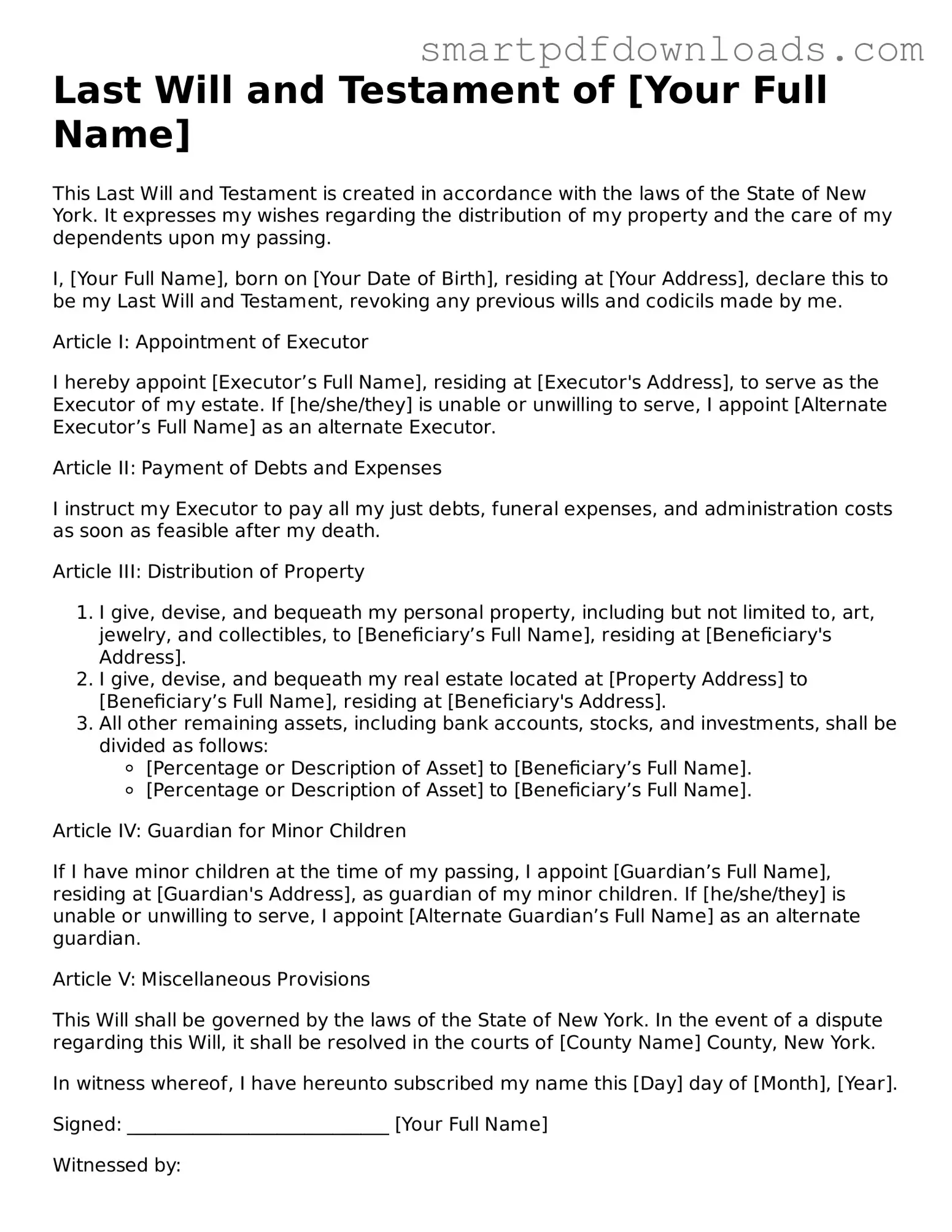Legal Last Will and Testament Form for the State of New York
A Last Will and Testament is a legal document that outlines an individual's wishes regarding the distribution of their assets after their death. In New York, this form serves as a crucial tool for ensuring that a person's estate is managed according to their preferences. Understanding the components and requirements of this document can help individuals make informed decisions about their legacy.
Edit Last Will and Testament Online

Legal Last Will and Testament Form for the State of New York
Edit Last Will and Testament Online

Edit Last Will and Testament Online
or
⇓ PDF File
Finish the form and move on
Edit Last Will and Testament online fast, without printing.